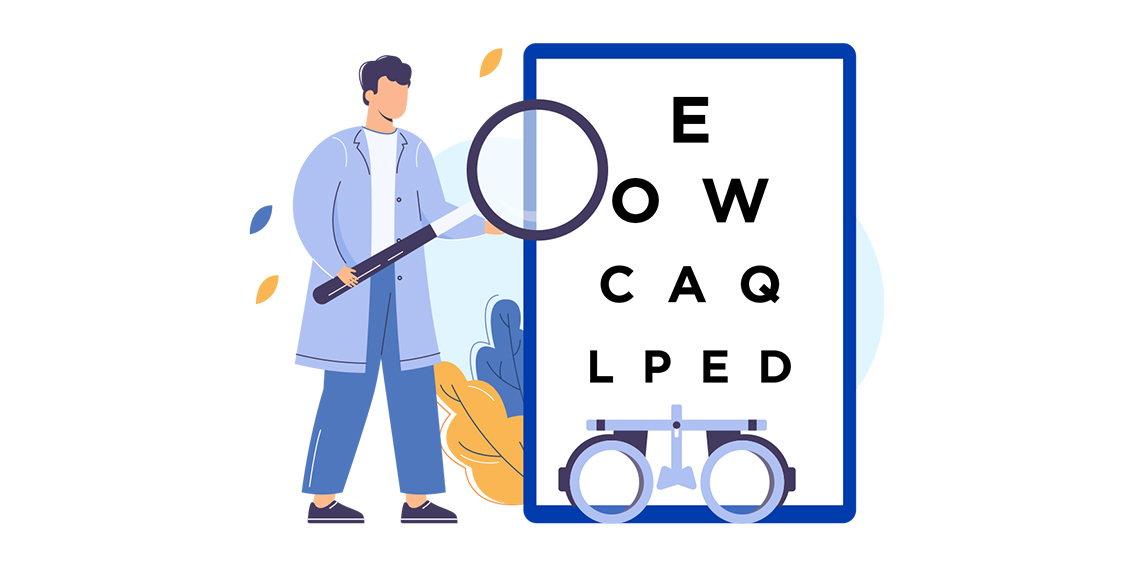

Hay Fever - Definition, Causes, Symptoms, Treatments
Hay fever, also known as allergic rhinitis, is an allergic reaction to pollens, moulds, animal dander and dust mites, which are all environmental allergens. It affects much of the population and is more common in certain seasons.
Read on to find out what causes hay fever and how you can relieve the symptoms.
What is hay fever?
Hay fever is a common allergic reaction to environmental allergens and affects many people around the world. Hay fever is becoming increasingly more common due to increased pollution and climate change. According to a 2019 study conducted by the Australasian Society of Clinical Immunology and Allergy (ASCIA), hay fever affects around 18% of people, both children and adults, in Australia and New Zealand.
Source: Australasian Society of Clinical Immunology and Allergy (ASCIA)In need of an eye check-up?
We recommend that everyone should have an eye test with an optometrist at least once every 2 years.
Oscar Wylee offers bulk billed eye tests, so there are no out-of-pocket expenses for eligible Medicare cardholders
What are the symptoms of hay fever?
Hay fever most commonly causes nasal issues such as a runny nose, coughing or sneezing. It can also cause an itchy nose, throat or roof of the mouth. Hay fever can also cause symptoms that can affect your eyes. The symptoms of hay fever are listed below.
- Itchy/irritated/gritty eyes
- Red eyes
- Watery eyes
- Stringy discharge from the eye
- Blurry vision
- Blocked/runny nose
- Itchy throat and nose
- Mucus at back of the throat
- Fatigue
- Coughing and sneezing
What causes hay fever?
Hay fever is caused by triggers such as tree and grass pollen, dust mites and spores from mould and fungi. When these substances enter your body, the immune system identifies them as harmful, releasing chemicals such as histamine into the bloodstream, which causes hay fever symptoms.
There are many other common eye conditions such as glaucoma and myopia that can affect a person’s vision. Read more about these eye conditions and their symptoms.
How long does hay fever last?
Unlike the common cold, hay fever can last for weeks or even months, however long you are exposed to the environmental allergens that cause the allergic reaction.
How to treat and relieve the symptoms of hay fever?
Hay fever can be treated in a number of ways to relieve the symptoms. The treatments for hay fever are listed below.
- Wear sunglasses, eye protection or goggles outside
- Take antihistamines
- Use nasal spray
- Use steroid and hay fever eye drops (can only be prescribed by GP or optometrist)
- Try saline nasal rinses
- Don’t rub your eyes

How to manage hay fever?
While medication can be used to relieve the symptoms of hay fever, there are also some natural ways you can manage it yourself.
The ways you can treat hay fever naturally are listed below.
- Apply vaseline to the nostrils: By applying this substance it will trap pollen from entering your nose and causing an allergic reaction.
- Clean your house of dust: People who are allergic to dust mites can mitigate hay fever symptoms by regularly cleaning their house and changing bedding.
- Wear wrap-around sunglasses: By wearing wrap-around sunglasses, the extra protection can stop pollen from entering your eyes.
- Keep windows closed: When possible, it is good to keep windows closed to stop pollen from entering your home.
When is hay fever season in Australia?
The typical time for hay fever season in Australia is from August to March, sometimes even up to May depending on the type of grass. This is due to increased pollen that is released in the air from trees and grass.
Can you get hay fever in winter?
Yes, you can get hay fever any time of the year depending on the allergens you are allergic to. While pollen is most common in spring and summertime, you can also get hay fever from substances that can occur in winter, or all year round, such as dust mites, mould and pet dander.
When to see a doctor?
Hay fever can usually be managed with home remedies and medication, but you should speak to a doctor if you cannot find any relief from the symptoms or if you have another condition that can aggravate your hay fever symptoms, such as asthma.
How is hay fever diagnosed?
Hay fever can be diagnosed by a health care provider who can prescribe your treatment options. A doctor can provide a diagnosis for hay fever in three main ways.
- Exam: A doctor may examine your nose, eyes and throat for hay fever.
- Allergy test: An allergy test is the most common way of diagnosing hay fever. It involves a blood or skin prick test.
- Patient history: You can be diagnosed with hay fever by describing your symptoms to the doctor and the times that these allergic reactions occur.
Frequently asked questions about hay fever
Is hay fever contagious?
Can you develop hay fever?
Why do I get hay fever at night?
Can you cure hay fever permanently?
Can you prevent hay fever?



